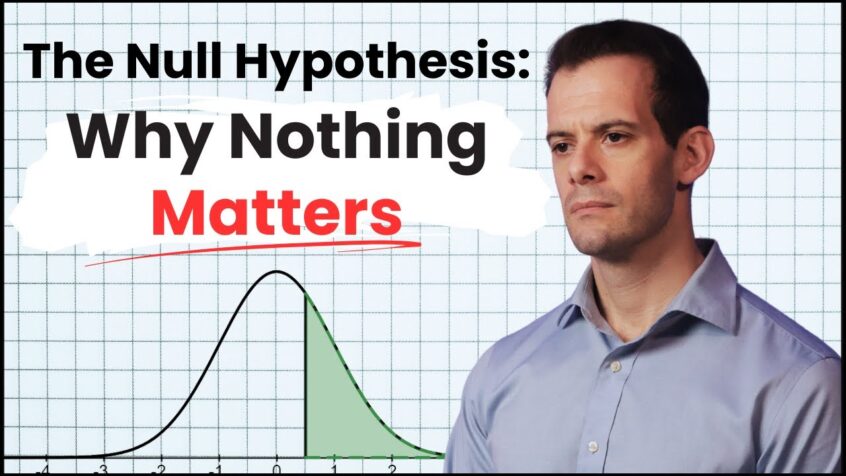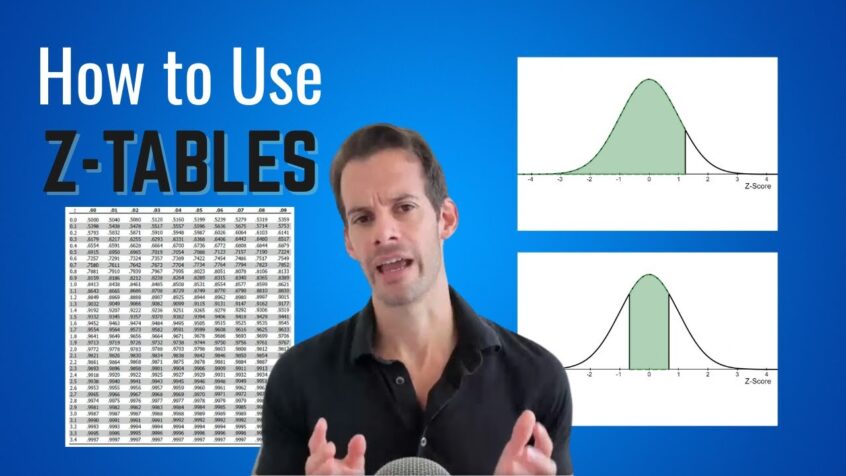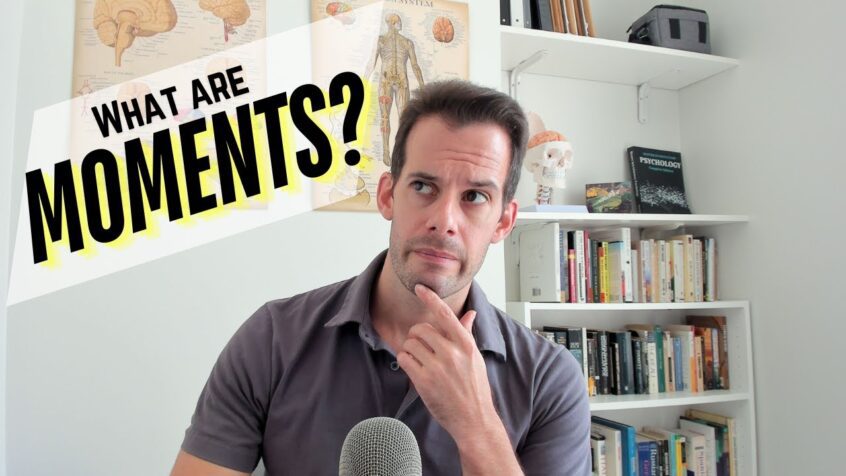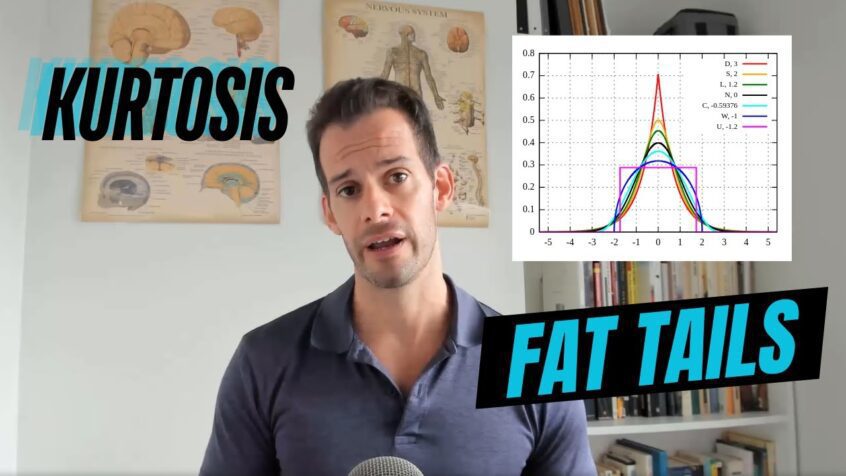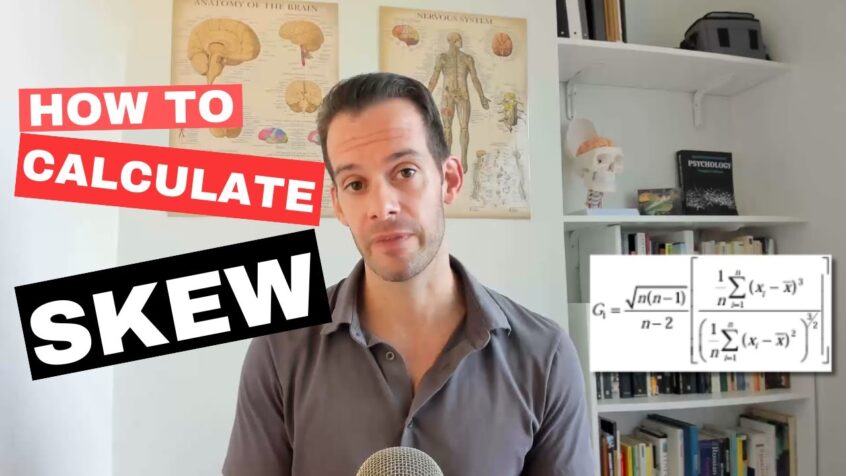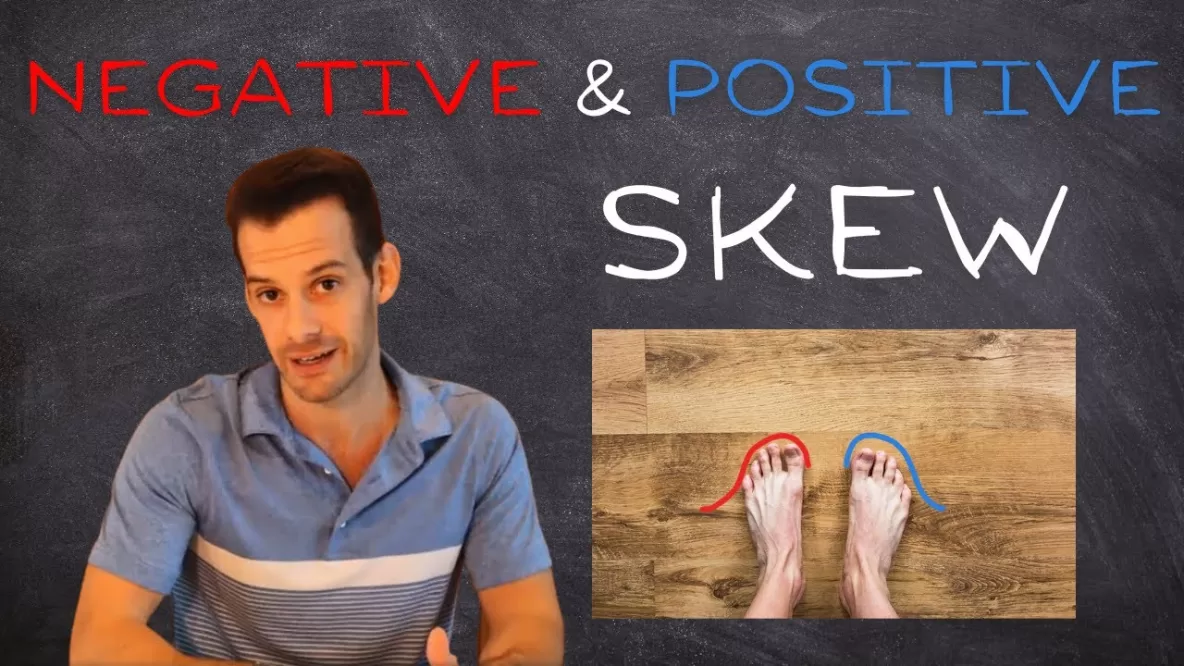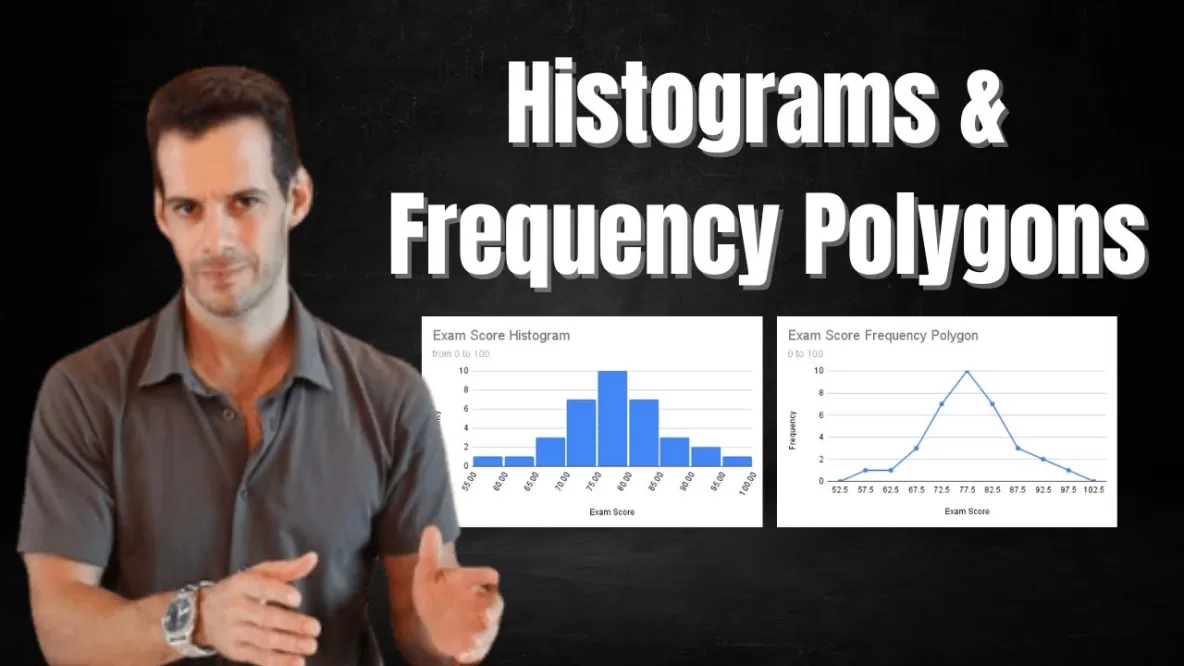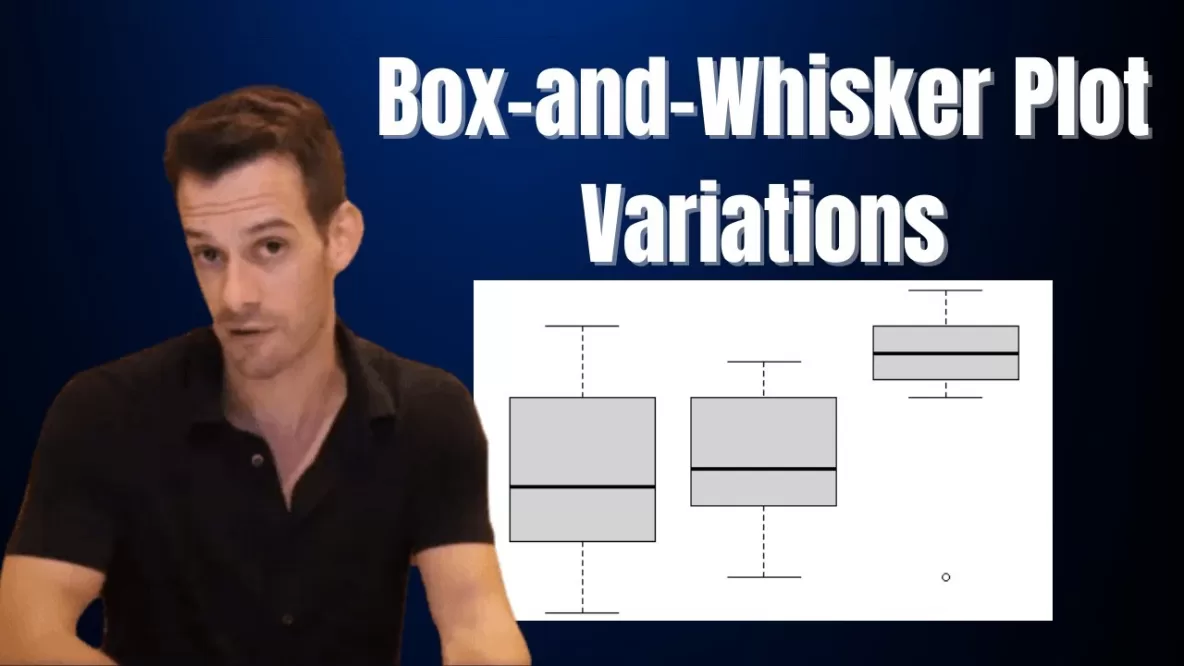In this video I explain the logic of null hypothesis significance testing and how researchers use a null hypothesis and a comparison distribution or sampling distribution in order to assess the probability of a particular test statistic or calculation. Video … Read More
How to Use a Z-Table (Standard Normal Table)
In this video I explain how to use a z-table or a standard normal table in order to calculate the percentage of scores below, above, or between z-scores for a normal distribution. Finding the areas under the curve associated with … Read More
The Standard Normal Curve, Empirical Rule, & Z-Scores
In this video I explain how we can use the equation for a normal curve to generate a probability density function and use that to estimate probabilities. While normal curves may differ in where they are centered and how spread … Read More
How Are Moments Used in Statistics?
In this video I explain how moments are used in statistics in order to describe the characteristics of a distribution. The first four moments help to tell us about the mean, variance, skew, and kurtosis of a distribution and allow … Read More
What is Kurtosis?
In this video I explain the concept of kurtosis. I explain the terminology for kurtosis coined by Karl Pearson, a number of common misconceptions related to kurtosis, how kurtosis is calculated for a sample, and how kurtosis is interpreted for … Read More
How to Calculate Skew
In this video I explain two formulas for calculating skew: Pearson’s Median Skewness or Pearson’s 2nd equation for skew, and the Adjusted Fisher-Pearson Standardized 3rd Moment Coefficient for skew. I also explain some general guidelines for interpreting skew values, as … Read More
Skewness – Floor & Ceiling Effects
In this video I explain how skewness in a sample may be caused by a floor or a ceiling effect, in which the measurement isn’t able to capture variability at the low or high end of a population’s distribution. A … Read More
Skewness – Positive & Negative Skew
In this video I explain one way in which a distribution can deviate from normality, which is skewness. I explain the difference between positive and negative skew, and how these can be seen in histograms, stem and leaf displays, and … Read More
Histograms & Frequency Polygons
In this video I explain the difference between histograms and bar charts, look at the creation of histograms and frequency polygons for continuous variables, and then discuss why we want to get a sense of the shape of a distribution … Read More
Exploratory Data Analysis: Box & Whisker Plots
In this video I describe box-and-whisker plots, or boxplots, developed by John Tukey. First we’ll look at a simple box-and-whisker plot, then we’ll see some variations depending on the data, some different sets of terminology that can be used when … Read More
- Page 1 of 2
- 1
- 2

